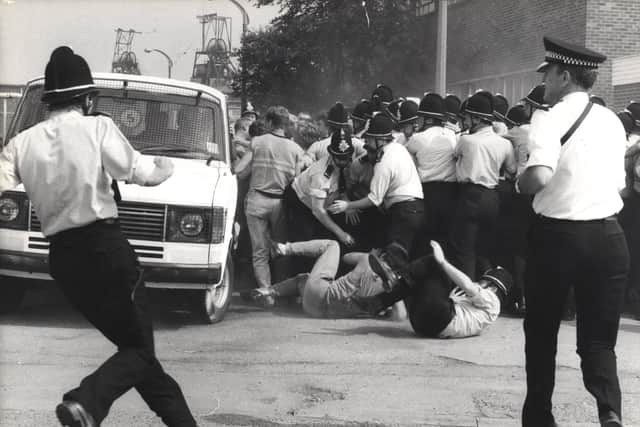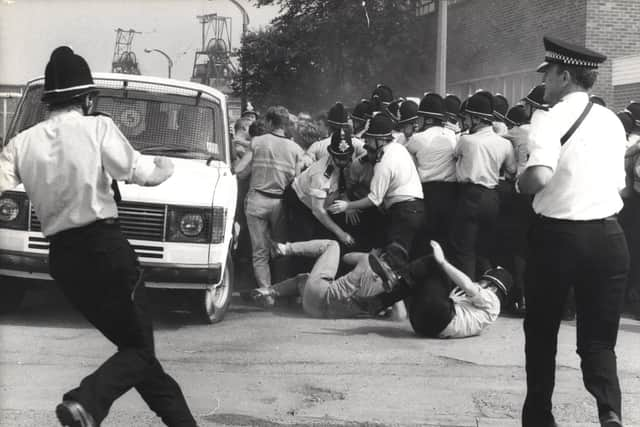MINERS’ STRIKE 40TH ANNIVERSARY: Officer has ‘no memory’ of inappropriate behaviour by police on picket frontlines
and live on Freeview channel 276
Research from the National Coal Mining Museum on the 40th anniversary of the industrial action includes accounts from officers who policed the strike.
Many miners argue the tactics were heavy handed and that a corner was turned from community policing to a more aggressive, military-style approach.
Advertisement
Hide AdAdvertisement
Hide AdAnne Bradley, lead curator at the NCM, said: “The police set up roadblocks, particularly to stop people going to Nottinghamshire, where a vast majority of miners continued to work.


"Flying pickets were common. Striking miners wanted to picket collieries to dissuade the men from working.
"It's well known there were police roadblocks that turned men away if they looked like they were going to picket.
"I've heard some picketers carried fishing rods in the back of cars to make it look like they were going for a day out.”
Advertisement
Hide AdAdvertisement
Hide AdA report into the Battle of Orgreave questioned the policing tactics used.


Anne said: “From what I've seen so far there was fault on both sides, police and miners.
"There were miners who were well behaved and police who were well behaved.
"It seems the issue came from police from outside the local area who were brought in. Most pickets seemed to be good natured until there were too many people for police to cope with."
Advertisement
Hide AdAdvertisement
Hide AdShe said many police officers were not necessarily against the strikers’ cause and did not feel they were instruments of Margaret Thatcher’s government.
"Some police were quite kind, giving out sandwiches or having whip round for miners' children funds. Many police felt they weren't all Maggie's boot boys and they sympathised with the miners.”
The Express has been provided with notes of NCM interviews with police officers who worked at the pickets, including an officer who joined the force in 1979 and worked in Castleford.
In the conversation the officers said that the police “generally kept themselves separate from the pickets”.
Advertisement
Hide AdAdvertisement
Hide AdHe said it “could be friendly with them in some places but the mood would change when the scabs arrived”.
The officer was involved in a couple of conflicts with the pickets and believes police tactics were wrong on occasion.
He said most of the time it was good-natured with very little violence.
“We got some stick, but nothing serious,” he said
The officer considered his involvement to be purely his job and did not believe he and his colleagues were used for political ends.
Advertisement
Hide AdAdvertisement
Hide AdHe described the mounted police tactics as being like those used to manage football fans, but said they were more difficult to use on the picket lines because interaction was face-to-face.
He said he didn’t have a lot of spare time and often worked nights, drinking with miners in Pontefract afterwards.
He continued to work in Castleford for three years after and said the community had been hit badly by the pit closures, but he, as a member of the police, was not blamed for the problems.
He wasn’t involved in making many arrests during the strike as it was largely good-natured.
Arrests would have also meant losing officers and becoming even more outnumbered.
He said had “no memory of much ‘inappropriate’ behaviour by the police”.